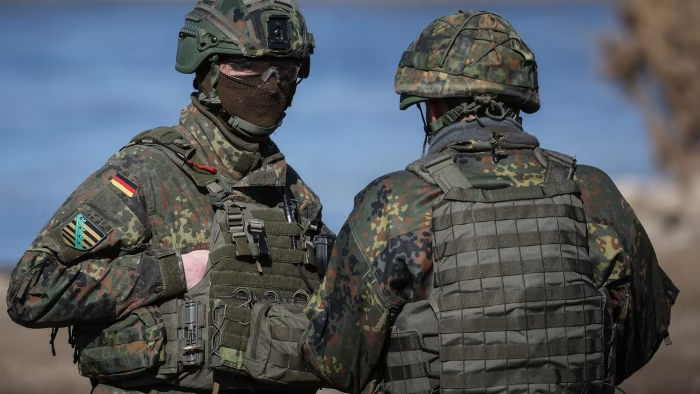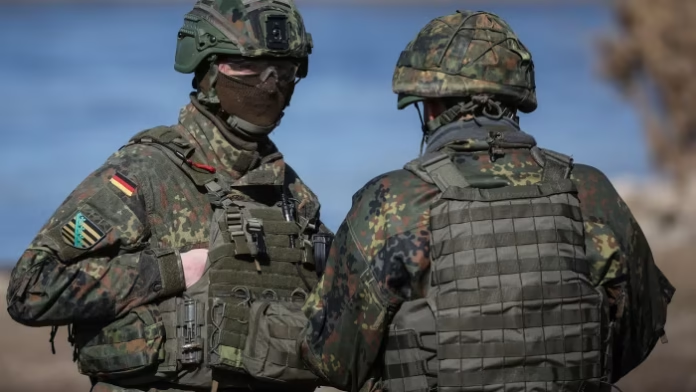Germany set to revive Military Moving Towards Strictness
Germany set to revive military conscription on Friday, with legislation headed for cabinet approval that could restore mandatory service for the first time since 2011. The proposal aims to address chronic personnel shortages in the Bundeswehr as Europe faces mounting security threats from Russia.
The draft law, set for cabinet consideration on Wednesday, initially emphasizes voluntary enlistment but includes provisions to reintroduce compulsory service if recruitment targets aren’t met. Chancellor Friedrich Merz has made strengthening Germany’s military a cornerstone of his administration, vowing to create “Europe’s strongest conventional army”.

Political Divisions Emerge
The conscription debate has exposed rifts within Germany’s governing coalition. Germany set to revive military. While Merz’s Christian Democratic Union and its Bavarian partner support mandatory service, the Social Democrats favor voluntary recruitment. Defense Minister Boris Pistorius, from the SPD, has championed the voluntary approach while acknowledging that conscription could be necessary if volunteer numbers fall short.
“We cannot afford to wait indefinitely; we need a decisive timeline for when we must adapt our strategy,” said Thorsten Frei, head of the CDU/CSU parliamentary group.
The proposed legislation would require all 18-year-old men to complete questionnaires about their willingness to serve starting next year, with medical screening becoming mandatory from 2027. Women would participate voluntarily in the questionnaire process.

NATO Pressures and Security Concerns
Germany’s push for military expansion stems from NATO requirements and President Trump’s calls for European allies to shoulder more defense responsibility. The Bundeswehr currently has approximately 183,000 soldiers but needs around 60,000 additional troops to meet NATO standards.
Recent polling reveals public skepticism about the initiative. Only 57% of Germans say they would defend their country if attacked, according to a 2024 Gallup survey. Among younger citizens, support is even weaker, with more than one in five under-25s voting for the far-right AfD party in recent elections.
Financial concerns also loom large. The Ifo institute estimates that compulsory service would cost €70 billion, primarily due to lost economic productivity as young people delay entering the workforce.
Despite extensive recruitment campaigns and salary increases that could lift new recruits’ pay to over €2,300 monthly, the Bundeswehr continues struggling with its image. The military has long been hampered by equipment shortages, management problems, and political scandals.
The legislation represents Germany’s most ambitious military reform. Germany set to revive military. Since the end of the Cold War, as the country grapples with a changed security landscape and questions about American commitment to European defense.

